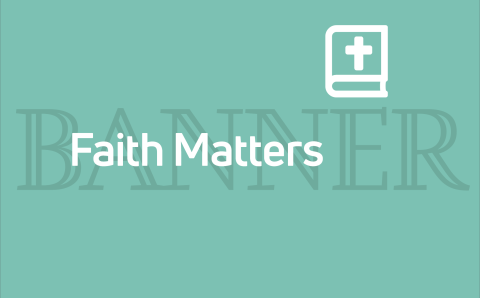“How’s your mom?”
Because my mom has brain cancer, I get asked this question several times a day, and I find myself fumbling for words in an effort to answer. Don’t get me wrong—I want people to ask about my mom. I would rather struggle to answer than have people ignore the pain in my heart.
But I find myself wondering whether the person really wants to know or is simply being polite. Is this a passing question like “Hi, how are you?” If so, I’m fine with a short answer—“Doing better today, thanks.” There is a time and place for that type of interaction. Yet I struggle because I want to be honest, and that short answer just doesn’t seem to capture our reality right now.
There’s even more to consider.
How much time does this person have? How much detail do I divulge? Is she comfortable with the tears that may come or other emotions that may surface as I answer honestly? How much time and energy do I have at the moment? Should what I share change if I have my children with me?
The honest answer is, not good.
I want to be honest, yet not share too much. I want to be hopeful, yet not minimize the pain. I want to focus on the positive, yet don’t want people to stop praying because it seems like my mom is fine for now. I want to be realistic, yet not doubt what God can do. I want to be thankful for today, but tomorrow’s unknowns are very unsettling.
A Question with Three Layers
“How’s your mom?” is a question, I’ve come to realize, that has three layers. The first layer focuses on the temporary: How is your mom today?
Today is better than yesterday and certainly better than a few weeks ago when my mom was in a coma. She is making great progress, and we are so thankful. But we’re worried about her eyes and her vision and her short-term memory and some other changes we see, not knowing if they are permanent or temporary. We don’t know how these things will affect our lives and how we function as a family.
Several times during these weeks, we thought she might die, and we are so thankful to have her yet.
Still, she was supposed to be in Michigan with my family at the beginning of September, not in Swedish Hospital in Seattle. She was supposed to help my sister get settled in her new house in Lynden and enjoy having grandchildren nearby for the first time in her life. She was supposed to be gearing up for a trip to Thailand to be with my brother and sister-in-law when their baby is born. Yet saying “supposed to” makes it seem like God owes me these things, which is certainly not the case.
The second layer is tougher: What is your mom’s prognosis?
The honest answer is that the prognosis is not good. My mom has the “most lethal” form of brain cancer—so lethal that we were relieved to hear that with aggressive treatment and with the vaccine trial she may live another two to four years. Who knew I could be pleased to hear such news? A few years is so much better than six months or six weeks, but much of the time I want to curl up and just sob—or throw up. But life continues, and I have four children who need me.
Still, any of us could die today or tomorrow or the next day. I could die before my mom, for that matter. My father-in-law called and left a message: “God numbers our days, not a diagnosis.” So true. I am resting in that.
For 10 years I worked for hospice—so I know enough to know I don’t want to sit around hoping my mom will be fine instead of doing what I can do to enjoy each moment of the time I have left on this earth with her . . . which is not the easiest thing to do when you live 2,500 miles away.
I know we are supposed to make the most of each day with the people we love—but the reality of a terminal diagnosis changes priorities a bit—and I think it should.
I know God can heal my mom, and I pray fervently for that. I want to believe he will. At the same time, I had never prayed for healing so hard in my life as I did when my niece, Olive Hope, was alive, and God answered that prayer differently than I had hoped. It seems to be God's decision, not mine. But, believe me, I'm asking!
I think of my friends who have lost parents and siblings and children and spouses, some in tragic circumstances. Many died suddenly, and there was no chance to say “Goodbye” or “I love you” or “I’ll miss you.” I think of people around the world for whom my life would be a dream. I think of friends who lost their moms when they were children or teenagers or in their 20s—people who would have given anything for their mom to be at their wedding or to see their children or to simply be a part of their lives for many more years. I think of friends and neighbors whose moms were crack cocaine addicts or whose moms were in prison for most of their childhood . . . and this puts things into perspective.
The third layer to the question is the triumphant one: How’s your mom . . . eternally speaking?
The answer is, she’s great! She loves Jesus. She has hope for eternal life. It is all in God’s hands. God, whose timing is perfect, works everything for good. We have the hope of seeing her again in heaven. Thank God for the resurrection. He is more than enough.
While I’ve found that these answers sometimes ring hollow in the midst of deep pain, I know that they are true. (Which doesn’t mean you should say them to someone who is grieving!)
“My only comfort in life and in death,” says the Heidelberg Catechism, “is that I am not my own, but belong—body and soul—to my faithful Savior Jesus Christ. He has fully paid for all my sins with his precious blood, and has set me free from the tyranny of the devil. He also watches over me in such a way that not a hair can fall from my head . . . . Because I belong to him, Christ, by his Holy Spirit, assures me of eternal life” (Q&A 1).
I know that God is walking with our family in this valley and has a perfect plan for our lives. It just doesn't always feel that way. See how complicated this gets?
My mind floods with an array of responses to “How’s your mom?”: some sweet, some sarcastic, some spiritual, some sorrowful. So here’s my best answer:
a) In the short term—improving.
b) In the mid term—devastating.
c) In the long term—better than we can imagine.
Really, it’s all of the above.
About the Author
Stacia Polinder Hoeksema is an adjunct professor in social work at Calvin College in Grand Rapids, Mich.









